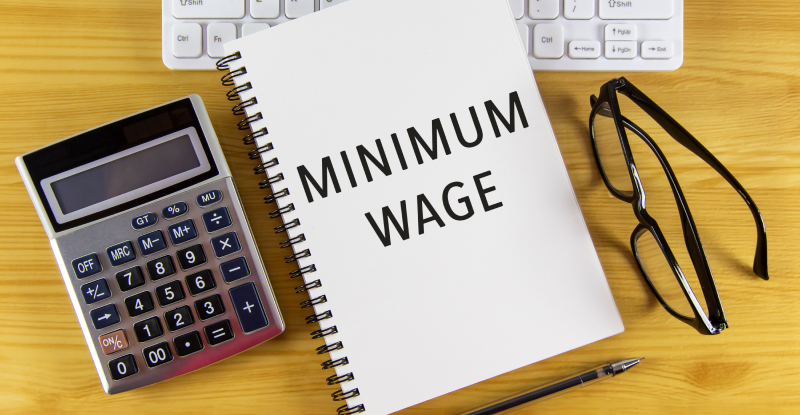
The Underused Housing Tax Act, which was introduced in Bill C-8 and received royal assent on June 9, 2022, sets out an annual 1% property tax on the value of residential property that is considered vacant or underused. Like Vancouver’s Empty Homes Tax and BC’s Speculation and Vacancy Tax, the Underused Housing Tax (UHT) is intended to improve housing affordability by discouraging certain owners from leaving residential properties vacant. There are some significant differences, however, in how these taxes are applied. This article provides a brief overview of the UHT to explain a few of these nuances.
What properties are affected and when?
The UHT applies to all residential property in Canada. Generally speaking, a “residential property” is a detached house with up to three dwelling units, such as a duplex or triplex, a semi-detached house, a row house, a residential condominium, or any other similar premises intended to be owned as a separate unit. It also includes any surrounding land, common areas, and other appurtenances necessary for the property’s use and enjoyment as a place of residence.
The UHT will be applied retroactively to January 1, 2022, and will apply to residential properties that are owned on December 31 of each calendar year. Owners who are not “excluded” (as defined below), will have to file an annual declaration and pay any resulting taxes by April 30 of the following year, with the first filing for the UHT occurring on April 30, 2023.
Who does this tax apply to?
The UHT applies on a calendar-year basis to every legal title holder of a residential property on December 31, as well as to certain persons with a life interest or long-term lease.
The UHT and its filing requirements do not apply to an excluded owner, defined as a person who is one of the following on December 31:
- A Canadian citizen or permanent resident of Canada (unless they hold the property in their capacity as a trustee of a trust or as a partner in a partnership);
- A publicly listed Canadian corporation;
- A trustee of a mutual fund trust, real estate investment trust, or specified investment flow-through trust;
- A registered charity;
- A co-operative housing corporation;
- An Indigenous governing body; or
- Certain other public institutions and governmental bodies.
How is the tax calculated?
The amount of UHT payable is 1% of the property’s taxable value, multiplied by the ownership percentage. The property’s taxable value is the greater of:
- The assessed value for property tax purposes; and
- The most recent sale price on or before December 31 of the calendar year.
Alternatively, an owner may elect to use the property’s fair market value at any time between January 1 and April 30 of the following year as its taxable value.
Are any exemptions available?
Yes. The UHT is not payable if a residential property:
- Is a primary place of residence: An exemption will apply if a dwelling unit1 that is part of the property is the primary place of residence of the owner, their spouse, or their child (assuming the child is studying at a designated learning institution). Generally speaking, a household can only designate one property as their primary place of residence in the year.
- Has qualifying occupancy: There will be an exemption if a dwelling unit is occupied by one of the following individuals for at least 180 days of the year (only counting periods of at least one month):
- Is owned by a specified Canadian corporation: There will be an exemption if the property is owned by a Canadian corporation whose shares—representing at least 90% of the votes or value—are held either directly or indirectly by citizens or permanent residents of Canada.
- Is owned by a specified Canadian partnership or trust: Similarly, there will be an exemption if the property is owned by a Canadian partnership or trust where each member or beneficiary is an excluded owner or a specified Canadian corporation.
- Is used seasonally: The property will be exempt if is not suitable for year-round use or if it is seasonally inaccessible.
- Has been affected by disaster or hazardous conditions: Any property that is uninhabitable for at least 60 consecutive days in the year as a result of disastrous or hazardous conditions caused by circumstances beyond the owner’s control will be exempt. Owners can only rely on this exemption for up to two years.
- Is undergoing major renovations: A dwelling unit that is uninhabitable for at least 120 consecutive days in the year due to renovations will be exempt, as long as the work has been carried on without unreasonable delay and the same exemption was not used in any of the previous nine years.
- Is a new construction: If construction of the property is not substantially completed before April, it will be exempt. The property will also be exempt if construction is substantially completed after March and it has been put up for sale without ever being occupied.
- Was acquired during the same year: The property will be exempt if the owner acquired it during the calendar year and was not an owner in the previous nine years.
- Is a vacation or recreational property: According to draft regulations of the UHT Act, if the property is located in certain less densely populated areas and is used by the owner or their spouse for at least 28 days of the year, it will be exempt.4
Additionally, there will be an exemption in the event of the property owner’s death during the current or prior calendar year. This exemption will also apply to the owner’s executor or administrator, as long as neither individual was otherwise an owner of the property in the year(s) in question. The exemption will also be available to the property’s surviving owners if the deceased individual owned at least 25% of the property.
Filing requirements and penalties
Each owner, other than an excluded owner, must file a return for each residential property owned on December 31 of the calendar year. Both the tax and the return are due on April 30 of the following year. Note that a return must be filed, even if one of the exemptions applies.
Late payments will be subject to interest at the prescribed rate, compounded daily, and failure to file the return by the due date will result in penalties equal to the greater of:
- $5,000 for individuals or $10,000 otherwise; and
- The total of:
- 5% of the UHT; and
- 3% of the UHT for each complete calendar month the return is late.
Failure to file the return by December 31 of the following year will result in the denial of most of the exemptions, including the primary place of residence and qualifying occupancy exemptions. And if an owner makes false statements or omissions amounting to gross negligence, they could be subject to a penalty equal to the greater of $500 and 25% of the UHT they’d avoided.
A final word of caution
When reviewing the possible application of the UHT to clients who hold residential properties in BC—particularly vacant or short-term-occupancy residential properties—practitioners should also carefully consider the possible application of the Empty Homes Tax and the Speculation and Vacancy Tax.
Nadeen Sakic, CPA, is a tax manager at D&H Group LLP in Vancouver, where she assists clients with personal and corporate tax planning, estate planning, corporate reorganizations, and tax dispute resolutions.
This article was originally published in the January/February 2023 issue of CPABC in Focus.
Footnotes
1 A dwelling unit is a residential unit that contains private kitchen facilities, a private bath, and a private living area.
2 See “related persons,” as defined in subsections 251(2) of the Income Tax Act. Note, however, that certain unrelated persons can also be non-arm’s-length tenants, depending on the circumstances.
3 Currently defined as 5% of the taxable value of the property for the year.
4 This exemption was introduced through Bill C-32, which received first reading on November 4, 2022.



